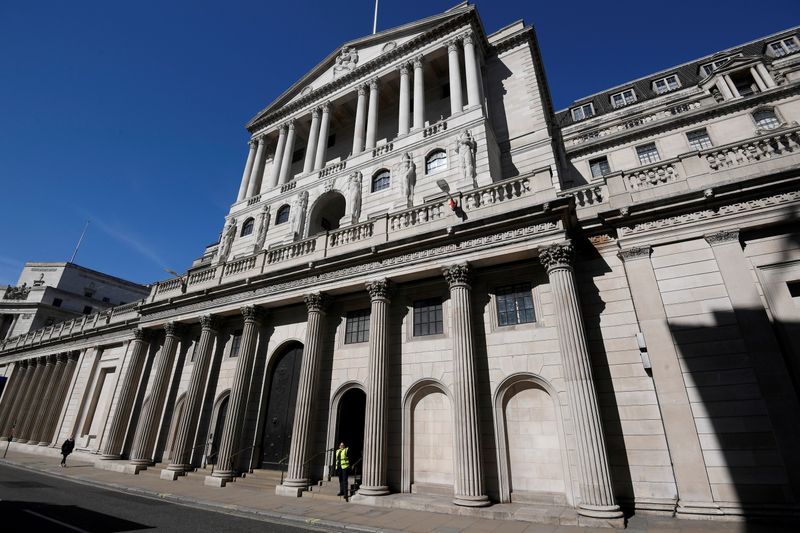By Huw Jones and William Schomberg
LONDON (Reuters) - The Bank of England asked banks on Monday how ready they are for zero or negative interest rates, following up its announcement last month that it was considering how to take rates below zero if necessary.
Other central banks have pushed rates into negative territory in an attempt to spur banks to lend more, and the BoE said in September it was looking into what such a policy might mean in Britain.
"As part of this work, we are requesting specific information about your firm’s current readiness to deal with a zero Bank Rate, a negative Bank Rate, or a tiered system of reserves remuneration – and the steps that you would need to take to prepare for the implementation of these," Deputy BoE Governor Sam Woods said in a letter to banks.
The BoE and lenders had to understand the implications of any such moves "since the MPC may see fit to choose various options based on the situation at the time," he said, referring to the central bank's Monetary Policy Committee.
Woods said he wanted to know if there were any technology challenges to implementing zero or negative rates.
"We are also seeking to understand whether there may be potential for short-term solutions or workarounds, as well as permanent systems changes," he said.
The BoE set a deadline of Nov. 12 - a week after its next monetary policy announcement - for banks to respond.
Most euro zone banks have held off passing negative rates on to the bulk of their retail customers despite borrowing costs being below zero for the majority of this decade.
However, UK banks would likely face a sharper hit to profitability if they opted not to shift rates in line with the Bank of England due to their differing business models.
Banks in most euro zone countries charge customers a fee for having accounts, whereas in Britain such charges are rare, and lenders' returns are largely based on the difference between lending and deposit rates.
Money markets last week pushed back bets that the BoE would cut rates below zero. Investors see rates falling below zero in May 2021, instead of March.
The BoE cut its benchmark rate to record low of 0.1% in March to help the economy through the coronavirus crisis.
Its next move is widely expected to be an increase in its 745 billion-pound ($972 billion) bond-buying programme in November.
Sterling and British government bonds were little changed in early trade on Monday.
Governor Andrew Bailey repeated his comments that the BoE's assessment of negative rates was not a sign that it would cut rates below zero.
"We have to ask the question, if they're in the toolbox, can we use them? But we are not near, and we haven't addressed the question (of) should we use them," he said in a question-and-answer session with members of the public.
Banks earn money from interest and negative rates would hit profitability, but Wood's letter made no specific mention of this, focusing instead on the technical preparedness of lenders.
An accompanying questionnaire asked banks how their retail and wholesale business's IT systems could cope, and how much time and money it would cost to make short-term "tactical" and permanent "strategic" changes.
Banks are already under pressure to help households and businesses struggling with the pandemic. They also could face a reduction in access to markets in the European Union when Britain's post-Brexit transition period expires.
